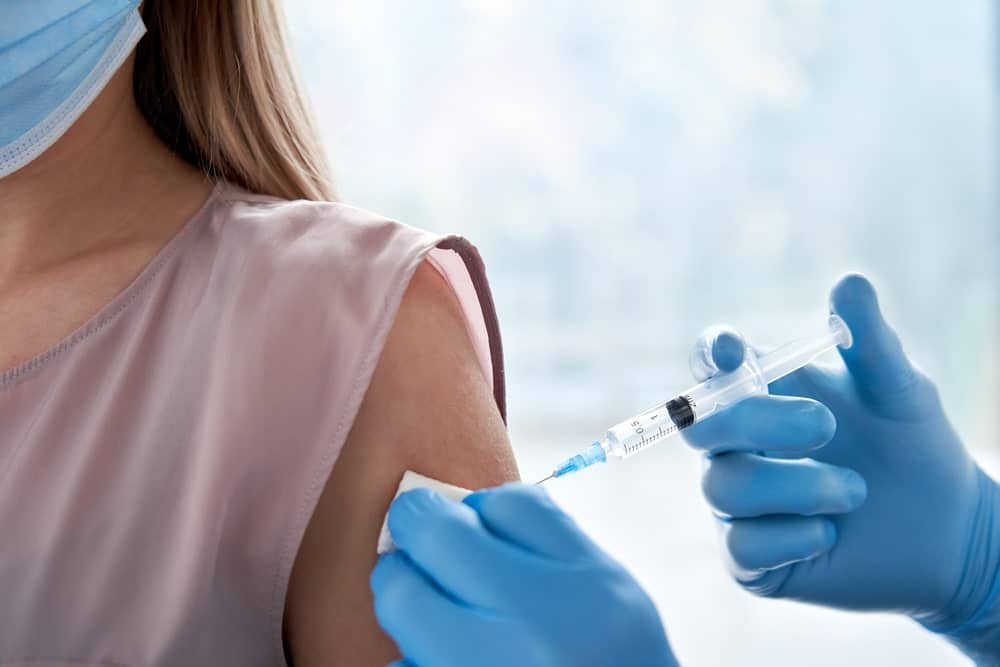Do you know the things that are covered by Medicare?
The debate about Medicare seems to be one that will last forever because no one knows for sure what is free and what you have to pay extra for. What are the things that are covered by Medicare? We want to know this information once and for all, and this is why we are here now.
Most people tend to worry a lot about how much the beneficiaries need to pay for various things, such as annual deductibles, monthly premiums, prescription drugs, and copays for doctor visits. But some things are covered by Medicare, and when we say that they are covered, we mean that they are free.
The only thing you should be careful about when you want to take advantage of these services is to always go to a medical professional who participates in Medicare.
Read on and find out what these services are and how to get access to them.

1. Diabetes screenings
When you are a senior, your health becomes a top priority in your life, and Medicare Part B plays a significant role in all of this.
Diabetes is one of the most common conditions that affect people over 60, and being aware that you are suffering from it is essential. In this way, you can start taking action as soon as possible and slow down the development of the condition. Also, since prediabetes is a thing, prevention is possible.
One of the things that are covered by Medicare, more precisely by Medicare Part B, is diabetes screenings. These screenings are mandatory for those who are at risk of developing the disease, and you should know that you are allowed to take two free screenings per year if you are part of this Medicare plan.
If you are over 65 and have a background of elevated blood sugar, obesity, high blood pressure, and abnormal cholesterol levels, it might be a good idea to take a diabetes screening.
2. Lung cancer screenings
Finding out about a condition early is one of the most important steps, and this is why screenings are so important. Hopefully, one of the things that are covered by Medicare is exactly this; various screenings and lung cancer screenings are one of them.
But knowing what the conditions are that make you eligible to take the lung cancer screenings is something anyone interested should know.
First of all, you should be between 50 and 70 years old and show no symptoms or signs of lung cancer. Then, you need to be a smoker or someone who has quit smoking in the past 15 years.
But this is not all; you should also have a smoking history of one pack a day for 20 years. Lastly, you will need to have an order from your doctor. After you have met all of these conditions, you can take the lung cancer screening for free. These free screenings can be accessed by eligible individuals once a year.
3. One wellness visit every year
We have to begin by saying that this is not your routine physical examination! No. This is a more complex session that is dedicated to updating your personalization plan. This well-being visit wants to help prevent disabilities and diseases.
Of all the things that are covered by Medicare, this one is probably the most complex and aims to make things personalized for every individual. Your doctor will take your vital signs and measure your weight, height, and blood pressure. Later on, they will review your medical history and all of the medications you are actively taking.
After this background check, you have the chance to tell them about any new symptoms and discuss any concerns that you have. This patient-centered approach makes sure that all of your health needs are met and can also make things more comfortable for most people.
You need to know that a cognitive assessment is also included, and this will help to identify any possible signs of dementia. Also, if your doctor notices that you might need any additional tests, such as a more complex physical exam or blood work, all of them will follow the rules of Medicare Part B.
4. Mammograms
We all know how important mammograms are, but lucky for us, they are one of the things that are covered by Medicare. If you are 40 or older, your Medicare plan will give you the chance to take a screening mammogram once per year. This is a routine screening that lets you identify any potential signs of breast abnormalities early.
You should also know about the difference between a screening mammogram and a diagnostic mammogram. The first one is a routine examination, as we already said, and the latter one will be ordered by your doctor after you have the screening mammogram that raised suspicions.
In case you need a diagnostic mammogram or a breast ultrasound after your initial mammogram, keep in mind that the rules of Medicare Part B will apply, and you will need to pay only 20% of the price.
Also, if your doctors recommend you have more mammograms in one year, Medicare will also cover those, which makes them free.
5. Colorectal cancer screenings
If you need a colorectal cancer screening, you are in the right place because it is one of the things covered by Medicare. And there is not one type of screening that is covered, but four separate screenings.
All of the individuals who are over 45 can take advantage of these screenings because it is a good preventive measure that can impact their well-being in the long run.
The first type of screening is the fecal occult blood test (FOBT). This is a non-invasive method that is taken once per year if you are 45 or older. It detects the blood in the stool and is essential for detecting any colon concerns.
A flexible sigmoidoscopy is essential if you have not had a coloscopy in the past 10 years. This test should be conducted every 2 years once you have turned 45, and it examines the lower part of your colon. It helps detect any possible abnormalities.
Another covered screening is the stool DNA test. This is recommended for those between 45 and 85 who don’t have any symptoms of colorectal disease and who are not at high risk.
The last one, the screening colonoscopy, should be conducted once every 10 years for those who are not at risk and once every two years for those who have a family history of colon problems.

6. Vaccines
Vaccines play a significant role in preventing the healthcare needs of seniors, and this is why you should always get your vaccines. The best thing is that these are some of the things that are covered by Medicare.
Today, those who have prescription drug coverage that is found under Medicare Part D can get most of their vaccines for free. That means you can take most of the vaccines recommended by the Centers for Disease Control and Prevention (CDC), and this is certainly a good thing for most seniors.
Get the shingles and Respiratory Syncytial Virus (RSV) for free, and make sure you will be safe and not contract these diseases. If you can prevent some conditions, why not do it?
If you want to keep our Medicare card in the best condition, you can try this sleeve: MaxGear New Medicare Card Holder Protector Sleeves 6 Pack
You should also read: 7 Interesting Reasons Why You Feel Like You Can’t Wake Up in the Morning














One Response
Are supplements vitamins ordered by your doctor covered by Medicare??